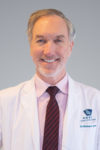Richard EPSTEIN

Title
Medical Oncologist
Degrees
MBBS, MBA, MD, PhD, FRACP, FRCP
Biography
Prof. Richard Epstein received his Bachelor of Medicine, Bachelor of Surgery degree from Sydney University, Australia, in 1979. He undertook oncology clinical training in Sydney, Australia (Prince of Wales Hospital, St Vincent’s Hospital, Royal Prince Alfred Hospital, Royal North Shore Hospital); Melbourne, Australia (Peter MacCallum Cancer Institute and Hospital); Cambridge, UK (Addenbrookes Hospital and MRC Research Centre, University of Cambridge); and Boston, USA (Dana-Farber Cancer Institute, Harvard Medical School). He was awarded his PhD from Cambridge University in 1988 and his MD from Imperial College, London (UK) in 1995. From 1993-98, he held the role of Cancer Research Campaign Senior Clinical Fellow in Medical Oncology at the Hammersmith Hospitals Trust in London. From 1998-2003, he served as Head of the Department of Oncology and Deputy Director at the National Cancer Centre in Singapore and as Associate Professor at NUS, Singapore. From 2003-09, he was Professor of Medical Oncology in the Department of Medicine at Queen Mary Hospital, The University of Hong Kong and Director of the Comprehensive Cancer Centre at Hong Kong Sanatorium and Hospital. From 2009-18, in Sydney, Australia, he held the positions of Professor of Medicine (UNSW) and Senior Consultant Medical Oncologist at The Kinghorn Cancer Centre, St Vincent’s Hospital and Head of Laboratory of Genome Evolution at the Garvan Institute of Medical Research.
Prof. Epstein has over 35 years of international experience in treating cancer patients. In addition to standard evidence-based cancer treatment protocols, his current areas of therapeutic interest include:
- Immunotherapy treatments;
- Personalized cancer therapies – the use of cancer genetic/DNA analysis or familial cancer susceptibility to help predict the unique sensitivity of each patient’s tumor to targeted (molecule-specific, non-chemotherapy, ‘smart’) drug treatments; and
- Theranostics – the use of injectable, tumor-specific diagnostic ‘tracer’ molecules to direct a cancer-killing radionuclide isotope to a patient’s metastatic deposits with high specificity, thus minimizing toxic side-effects on surrounding healthy tissues.
In addition to clinical trials, Prof. Epstein’s ongoing research interests lie in the areas of computational medical informatics, and in transgenic/CRISPR mouse models of genetic predispositions to cancer. The main types of cancers he treats include:
- Genitourinary cancers, including:
- Prostate cancer;
- Bladder cancer;
- Kidney (renal cell) cancer; and
- Testicular cancer;
- Breast cancer;
- Melanoma;
- Colorectal (bowel) cancer and esophageal/gastric (stomach) cancer;
- Neuroendocrine tumors/cancers; and
- Lung cancer.
In addition to his clinical work, Prof. Epstein has published over 150 papers in high-impact peer-reviewed medical journals such as The Lancet, Nature Reviews Cancer, Proceedings of the National Academy of Sciences USA, The New England Journal of Medicine, and the Journal of Clinical Oncology. In 2001, he was awarded a US patent for his discovery of phosphorylation-specific antibodies. In 2005, he was honored with the Medical Book of the Year from the Royal Society of Medicine and the Richard Asher Award from the Society of Authors for his textbook Human Molecular Biology (Cambridge University Press). He is involved in a number of medical societies and has acted as chairman and co-chairman of many academic committees worldwide. He has also led numerous clinical drug trials in the fields of breast, prostate, renal, and other cancers.
Professor Epstein sees a future for cancer care that is increasingly patient-centered rather than doctor-centered. This model of care will be embedded within a supportive team-based approach to holistic management and communication, where the patient’s quality of life and participation in clinical decision making will be as important as more traditional outcomes such as drug response rate and duration.
In addition to English, Prof. Epstein speaks some Mandarin, German, and French.
Copyright United Family Healthcare 2014 All right reserved - 京卫网审[2014]第1927号 - 京ICP备13017554号-4




